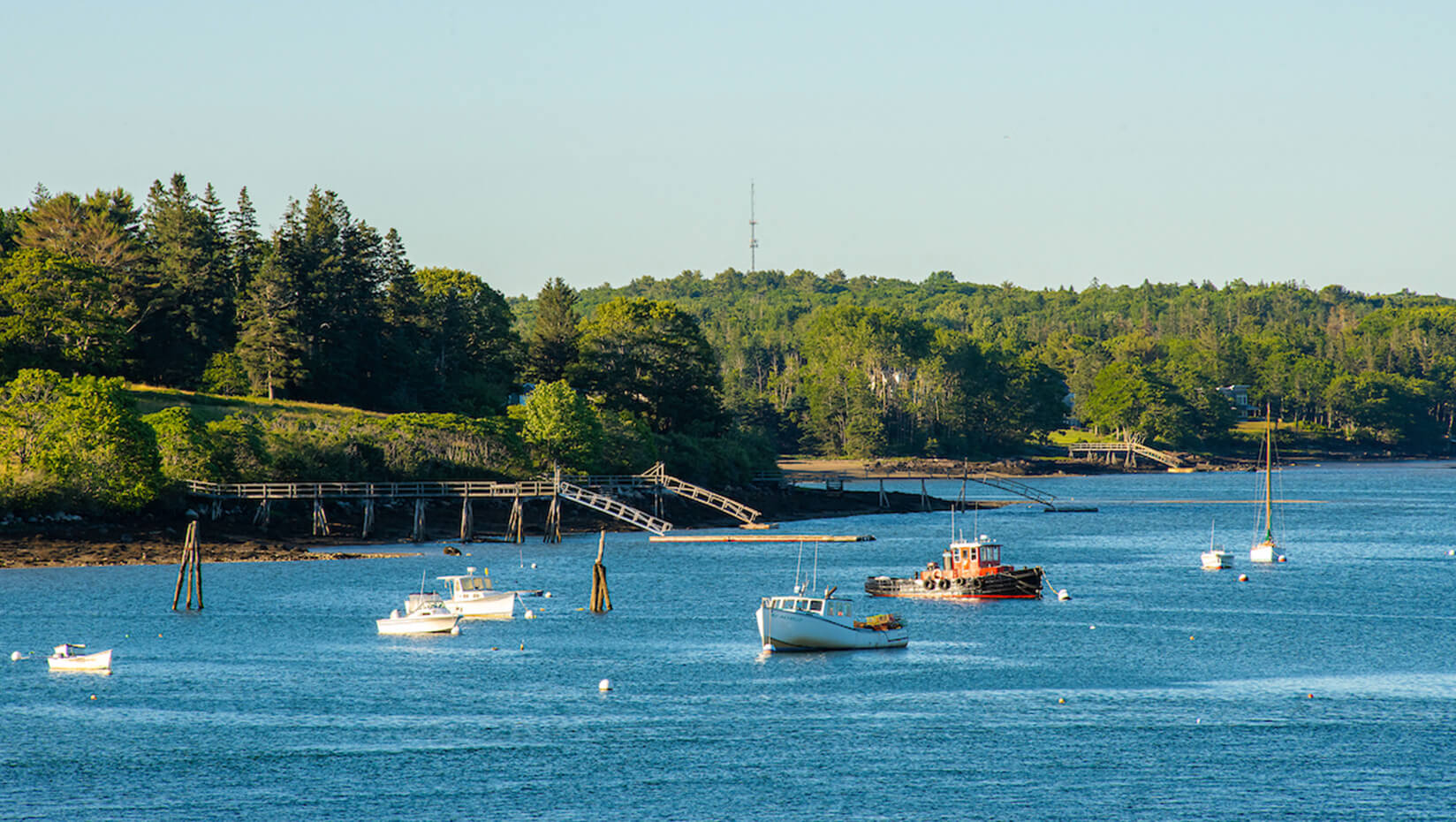
UMaine MARINE Initiative seed grant awardees announced
Three University of Maine projects have been awarded competitive seed grant funding to facilitate research collaborations across marine-related disciplines, academic units and research centers as part of the UMaine MARINE Initiative.
The purpose of this seed grant is to focus on collaborative, innovative pilot studies, with the clear intention of using this work to elevate future external proposals to a highly competitive level.
Faculty and professional research staff/scientists were invited to submit proposals in October, addressing a timely marine science challenge, concern or question. Supported projects receive awards up to $35,000.
Summaries of awarded projects:
Do biological particles scavenge and remove microplastic fibers from the ocean?
Marine plastic pollution is a ubiquitous issue throughout the world’s oceans, including Maine’s coastline. Microplastics pose health risks for humans, fish and wildlife, and therefore have important economic implications. Ocean plastic pollution is part of a complex cycle, with estimated inputs to the oceans exceeding the known removal rates. This project proposes to analyze a set of microplastic samples obtained from sinking particles collected in the eastern North Atlantic that may contain some of the first direct evidence for biological removal of plastic from the ocean. The results of the analysis would be relevant to microplastic cycling in Maine’s highly seasonal, productive coastal ocean environment. This knowledge will inform the sustainable management of plastic pollution in the shared “commons” of Maine’s coastline and Blue Economy.
Collaborators from UMaine include Margaret (Meg) Estapa, assistant professor of chemical oceanography; Onur Apul, assistant professor of civil and environmental engineering; Lauren Ross, assistant professor of civil and environmental engineering; Mikayla Clark, graduate student in the School of Marine Sciences; Sudheera Yaparatne, postdoctoral researcher in the Department of Civil and Environmental Engineering. Outside collaborator Colleen Durkin is a scientist at the Monterey Bay Aquarium Research Institute in Moss Landing, California.
Creating partnerships to provide the communities of Jonesport and Beals with economic data to guide local decision-making
Small-town municipal officials are tasked with decision-making related to their communities’ adaptation to environmental changes and other socially and economically disruptive events (such as the COVID-19 pandemic). These vulnerabilities are particularly notable in Maine’s small, coastal communities where reliance on commercial fishing leaves them particularly vulnerable to fluctuations and collapses in their fisheries, and other environmental and economic shocks. Researchers propose a pilot project to develop and model the social, economic, and technological frameworks necessary to guide local-level decision-making in the pandemic’s aftermath.
Collaborators from UMaine include Kristen Grant from Maine Sea Grant and University of Maine Cooperative Extension, and Megan Bailey from the Margaret Chase Smith Policy Center.
Developing pathways for new approaches to blue carbon science: Filling a critical knowledge gap in coastal ecosystem management using a model eDNA collaborative science initiative
Blue carbon was identified as a critical research need in the Maine Climate Action Plan. Accurate carbon accounting will assist in determining climate neutrality for the state, while increasing the potential for new economic opportunities involving carbon credits. These ecosystems provide invaluable services that buffer coastal communities against the effects of climate change such as protecting against storm surge and coastal erosion. Tidal marshes are particularly affected by human activities and threatened by sea level rise. In Maine, about half of tidal marshes are impacted by flow restrictions from culverts or road crossings, which can threaten further loss. Removing these restrictions can restore the ecosystem functioning of marshes, but identifying the need for restriction removal and monitoring the recovery of these restrictions can be costly and time consuming. This project proposes to use environmental DNA (eDNA) to better understand the connections between microorganism communities and carbon sequestration in restricted and unrestricted marsh areas.
Collaborators from UMaine include Andrew Rominger, assistant professor of ecological bioinformatics; Suzanne Ishaq, assistant professor of animal and veterinary sciences Bridie McGreavy, associate professor of environmental communication; Katharine Ruskin, lecturer and undergraduate coordinator in ecology and environmental sciences; and Heather Richard, first year P.hD. student in ecology and environmental science.
UMaine MARINE brings together researchers with an interest in all fields of marine sciences, including but not limited to oceanography, marine biology, policy, fisheries, aquaculture, seafood sciences, economics, social sciences, anthropology and seafood sciences. For more information visit the UMaine MARINE website.
Contact: research@maine.edu
